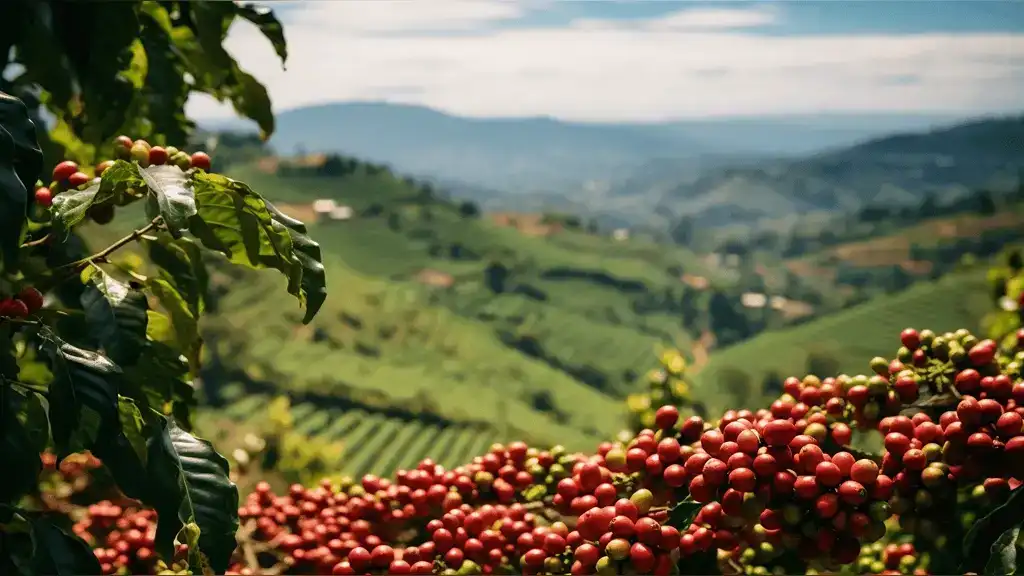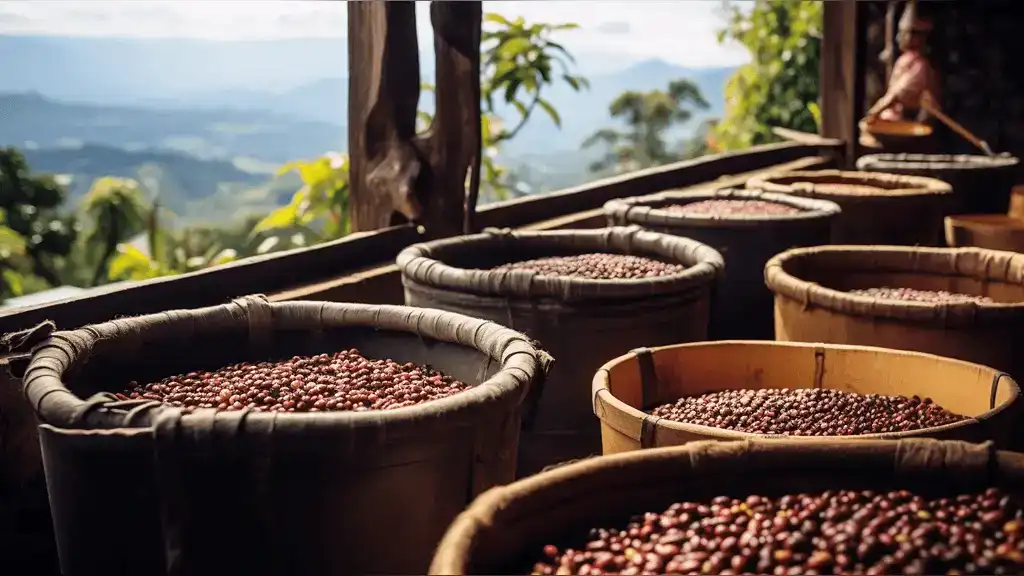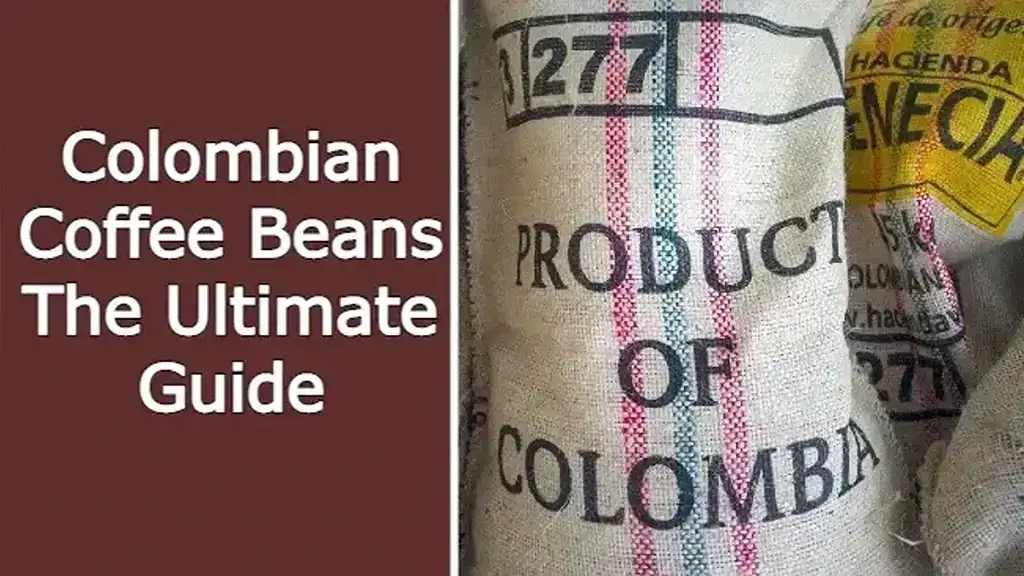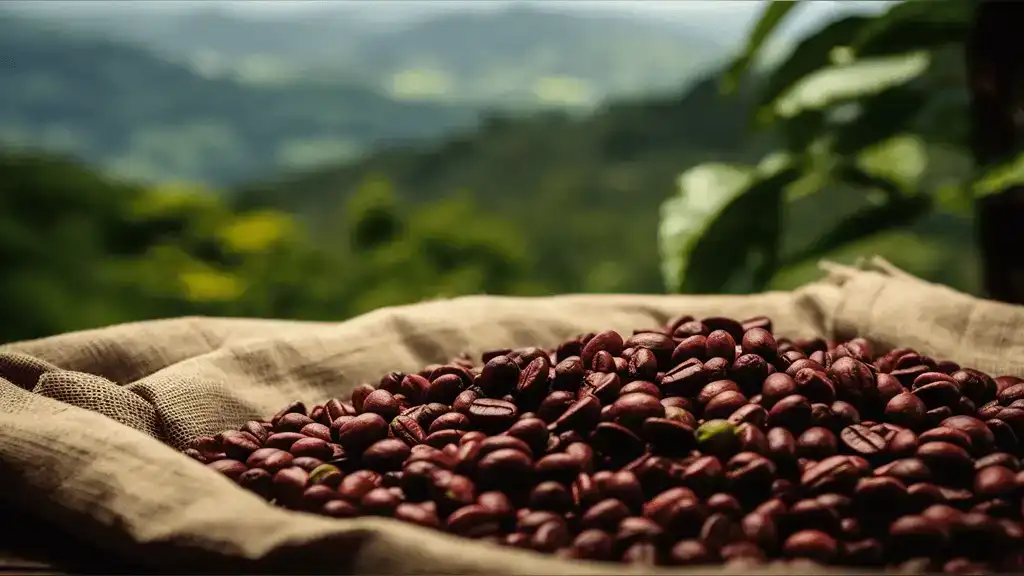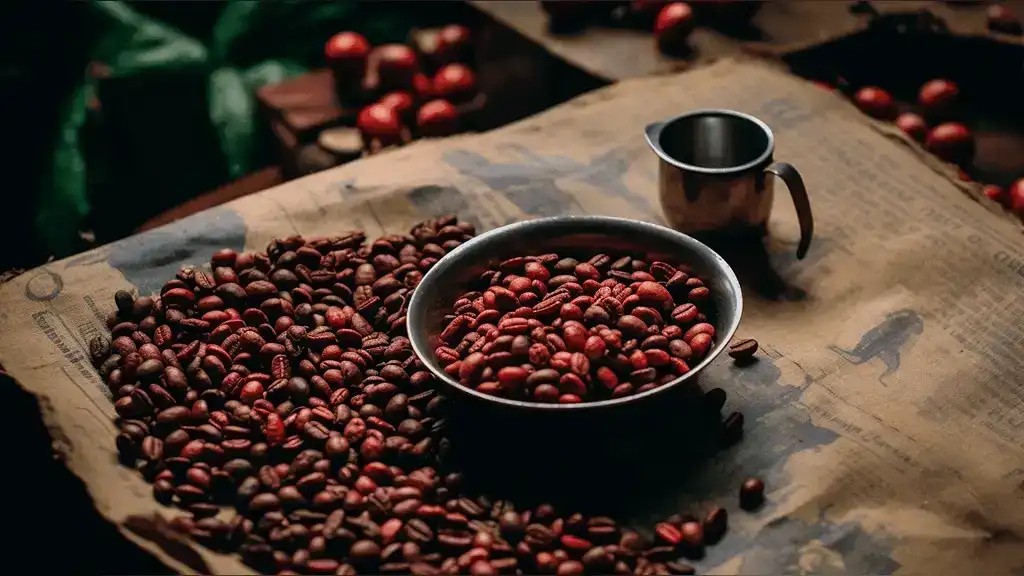If you love coffee, you’ve probably dreamt of traveling to a far-off place where the beans are grown in the rich volcanic soil and harvested by hand. Well, that place is Tanzania, and its coffee is some of the best in the world.
In this guide, we’ll tell you all about Tanzania’s coffee beans and what makes them so special. So pull up a chair and join us for a cup of fresh Tanzanian joe!
What is So Special about Tanzania coffee beans?
When it comes to coffee, Tanzania may not be the first country that comes to mind. However, this East African nation produces some surprisingly high-quality beans.
Tanzanian coffees have earned recognition at prestigious international competitions such as the Cup of Excellence. One of the reasons for their success is the diversity of growing regions within Tanzania.
The slopes of Mount Kilimanjaro produce a unique bourbon variety with hints of citrus, while the Mbeya region offers up deep, dark flavors. Whether you enjoy a light and fruity single-origin cup or a rich blend, Tanzania has something to offer any coffee lover.
Tanzania coffee characteristics
Did you know that Tanzania is one of the top producers of coffee beans in Africa? These beans have a unique taste profile, with notes of citrus and chocolate and a smooth finish.
The high altitude regions where the beans are grown, combined with the rich volcanic soil, contribute to their distinct flavor.
Tanzania is also known for their peaberry beans, which occur when a coffee cherry only produces one round bean instead of the usual two flat ones. These singular beans have a concentrated flavor and are highly sought after by coffee connoisseurs.
Tanzania Coffee History
Coffee production in Tanzania can be traced back to the late 1800s, when the first coffee plants were brought over from neighboring Kenya.
Initially, coffee was grown as a hobby by European settlers, but it wasn’t until the 1950s that commercial production began to take off.
Today, coffee is one of Tanzania’s key exports, and the country is among the world’s leading producers of organic coffee.
However, the industry faces several challenges, including a lack of infrastructure and outdated farming methods.
Can’t get enough of unique coffee experiences? Uncover the captivating world of coffee through our guide: Discover Kenyan Coffee Beans. Your taste buds are in for an extraordinary treat!
Passionate about the rich flavors of Tanzanian coffee? Dive deeper into the Tanzanian Coffee History Guide and journey through time to discover the roots of this African coffee gem.
Coffee production in Tanzania
Tanzania is one of the top coffee-producing countries in Africa! The country’s diverse terrain, ranging from high mountains to low-lying plains, lends itself perfectly to growing a variety of coffee beans.
Many Tanzanian coffees have earned international recognition for their unique flavors and qualities.
For example, the renowned Peaberry bean – which makes up only 5% of the country’s Arabica harvest – is highly sought after by specialty roasters and connoisseurs alike.
Tanzania’s coffee industry is an important part of the country’s economy, with coffee beans being one of the main exports. The majority of the coffee plantations are located in the southern highlands, where the climate is ideal for growing coffee.
The main coffee-producing regions are Mbeya, Iringa, and Kilimanjaro. Most of the coffee farms in Tanzania are small, family-run operations.
Tanzania coffee exports
Tanzania’s coffee exports have been growing rapidly in recent years, reaching a record high of $336 million in 2015.
The majority of Tanzania’s coffee is exported to European Union countries, with the United Kingdom being the largest importer. Other major markets for Tanzania coffee include the United States, Japan, and Canada.
The rapid growth of Tanzania’s coffee exports is due to many factors, including an increase in production as well as improved quality control. In addition, the country has been working to improve its infrastructure and logistics to make it easier for farmers to get their coffee to market.
Tanzania’s coffee export industry is expected to continue growing in the coming years as demand for specialty coffees continues to rise around the world. This growth will provide a much-needed boost to the country’s economy, which has been struggling in recent years.
Indulge in the exotic allure of Tanzanian coffee! Explore the unique harvesting methods of the Coffee Belt that create its distinctive taste. Dive into the journey from Navigating The Coffee Belt Journey.
Challenges facing the industry of coffee in Tanzania
The coffee industry in Tanzania is facing several challenges that are threatening its future.
- First, the country has very low productivity of coffee trees. This means that farmers are not able to produce enough coffee to meet the demands of the market.
- Second, the quality of coffee produced in Tanzania is also very poor. This is because most of the coffee trees in the country are old and have not been properly maintained.
- Finally, the marketing and distribution of coffee in Tanzania is also very poor. This is because there are no well-established channels for distributing and selling coffee in the country.
The New Coffee Policy in Tanzania
The coffee sector in Tanzania has undergone significant changes. The government has implemented several policies and initiatives aimed at reviving the industry and making it more competitive. These include the development of a new coffee policy, the establishment of a Coffee Board of Tanzania, and the introduction of a quality control system.
The new coffee policy sets out the government’s vision for the sector, which is to promote sustainable growth and development while ensuring that small-scale farmers benefit from the industry’s success. The policy includes measures to improve productivity, encourage value addition and marketing, and provide support for research and extension services. In addition, the government has committed to providing affordable financing for coffee farmers and processors.
The Coffee Board of Tanzania is responsible for implementing the policy and overseeing the industry. It has put in place many initiatives to support farmers, including the provision of training and extension services, the development of a coffee marketing strategy, and the creation of a fund to support small-scale farmers.
The quality control system introduced by the government is helping to improve the quality of Tanzanian coffee and make it more competitive in international markets. Under the system, coffee beans are graded and certified according to their quality. only certified coffee beans can be exported from Tanzania.
The government’s policies and initiatives are starting to bear fruit. The coffee sector is showing signs of growth, and the quality of Tanzanian coffee is improving. There is still much room for improvement, however, and the government is committed to continuing to work to support the industry and make it more competitive.
The Coffee Board of Tanzania spearheads these efforts. For a comprehensive understanding of these initiatives, consult the Rwanda Beans Guide: Expert Tips.
What does Tanzanian coffee taste like?
Tanzanian coffee is typically described as having a bright, acidy flavor with fruity notes.
The coffee beans grown in Tanzania are of some of the highest quality in the world, and as a result, Tanzanian coffee is often used in coffee blends.
When brewed on its own, Tanzanian coffee can be quite intense but is still very smooth and balanced.
Tanzanian coffee farms
Have you ever had coffee from Tanzania? If not, you’re missing out! The coffee from Tanzania is some of the best in the world.
The coffee farms are beautiful, and the coffee is grown in rich, volcanic soil. If you love coffee, you need to try it from Tanzania! You won’t be disappointed.
How many coffee farmers are in Tanzania?
Tanzania is one of Africa’s major producers of coffee, with over 500,000 farmers growing the crop as their primary source of income.
Coffee beans make up almost 90% of Tanzania’s total export value, and the industry employs nearly two million people.
However, coffee farming in Tanzania faces challenges such as a lack of resources and infrastructure, leading to low productivity and low market prices.
Organizations like Fairtrade are working to empower small-scale producers by providing resources and helping them sell their beans at a fair price, assisting Tanzania’s coffee farmers in overcoming these challenges and building a sustainable industry.
Overall, Tanzania’s coffee sector is thriving with numerous dedicated farmers working towards success in an increasingly global market.
Gibbs Coffee Farm in Tanzania
When it comes to coffee, many people want to know where their beans were grown and how they were processed.
That’s why Gibbs Farm Coffee prides itself on its transparent supply chain, sourcing all of its beans from the Mbinga District in Tanzania.
At 3,900 feet above sea level, the fertile soil and temperate climate create the perfect environment for growing high quality Arabica beans. These beans are hand-harvested by local farmers before being washed and dried using sustainable methods.
The result is a smooth, rich cup of coffee with tasting notes of chocolate and citrus. So next time you’re enjoying a cup of Gibbs Farm Coffee, you can feel good about supporting small-scale farmers and knowing exactly where your beans came from.
Coffee Rgions in Tanzania
The country’s coffee regions are located in the north and south of the country, and each has its unique climate and soil conditions that contribute to the distinctive flavor of its coffees.
The largest coffee-producing region in Tanzania is the Southern Highlands, which is located in the southern part of the country.
The Southern Highlands region has a cool, wet climate that is ideal for coffee production. The region’s soils are rich in nutrients, and this combination of factors results in coffees with bright acidity and a complex flavor profile.
Coffees from the Southern Highlands region are often described as being fruity and floral, with notes of citrus and chocolate.
The other major coffee-producing region in Tanzania is the Northern Highlands, which is located in the northern part of the country.
The Northern Highlands region has a hot, dry climate that is ideal for coffee production. The region’s soils are very rocky and have low levels of nutrients, which results in coffees with lower acidity and a more mellow flavor profile.
Coffees from the Northern Highlands region are often described as being nutty and chocolatey, with notes of caramel and honey.
Tanzania is also home of smaller coffee-producing regions, including the Central Plateau, the Lake Zone, and the Usambara Mountains. These regions produce coffees with a wide range of flavor profiles, depending on the particular climate and soil conditions in each area.
Tanzania Kilimanjaro Coffee
Tanzania Kilimanjaro coffee is grown in the mountainous region of Kilimanjaro. The Coffee beans are known for their rich flavor and unique aroma. Tanzania Kilimanjaro coffee is a popular choice among coffee lovers around the world.
The coffee plants are grown at high altitudes, which helps to produce beans with higher caffeine content. The coffee beans are hand-picked and then sun-dried before being roasted. This process helps to preserve the rich flavor and aroma of the coffee.
Tanzania Kilimanjaro coffee is a medium bodied coffee with a slightly sweet taste. It has a strong aroma with hints of chocolate and spices.
The coffee is best enjoyed black or with milk. Tanzania Kilimanjaro coffee is a popular choice among coffee lovers around the world.
Tanzania Mount Meru Coffee
Tanzania’s Mount Meru is home to some of the finest coffee in the world. The rich, volcanic soil and high altitude produce a coffee that is renowned for its unique flavor.
Mount Meru Coffee is grown at an altitude of 4,500 feet, making it one of the highest quality coffees available. The coffee beans are hand-picked and sun-dried, resulting in a coffee that is full-bodied and has a deep, rich flavor.
Mount Meru coffee is perfect for those who appreciate a truly unique cup of coffee that is both flavorful and exotic.
Tanzania Mbeya coffee
Tanzania Mbeya coffee is grown in the Mbeya region of Tanzania. This coffee is known for its rich flavor and strong aroma.
Mbeya coffee is typically made with a dark roast, which brings out the coffee’s natural sweetness.
Tanzania Mbeya coffee is grown at high altitudes, which gives the coffee its unique flavor profile. The coffee beans are hand-picked and sun-dried to preserve their freshness. After roasting, the beans are ground and brewed to create a rich, full-flavored cup of coffee.
Tanzania Mbeya coffee is best enjoyed black or with a small amount of milk or cream. Sugar can be added to taste. For iced coffee, brew a double strength cup of coffee and pour over ice.
Tanzania Coffee Varietal
Tanzania is known for its rich and flavorful coffee beans, many of which come from the famed Arusha region. The country’s most popular varietal is Arabica and Bourbon.
Both Arabica and Bourbon varieties are highly sought after by specialty coffee roasters, making Tanzania a major player in the international coffee market.
There are also some lesser-known varietals worth exploring, such as Mbeya Peaberry which offers fruity sweetness.
With such diverse options, Tanzania’s coffee has something to offer every type of coffee lover.
Journeying through Tanzania’s coffee regions, you’ll encounter beans with vibrant citrus notes and deep chocolate undertones. But have you explored the flavors of its neighboring country? Delve into the Zimbabwe coffee flavors and experience a new dimension of African coffee.
Arusha Coffee Variety
This coffee varietal was developed in Tanzania. The Arusha coffee plant is a hybrid of two coffee species, Coffea canephora and Coffea arabica (Typica/Bourbon). The resulting coffee bean has a higher caffeine content than either of its parent varieties.
The Arusha coffee plant is named after the region in Tanzania where it was first cultivated. The climate and soil of the Arusha region are well-suited for coffee production, and the plants typically yield a high quantity of beans.
The beans produced by the Arusha coffee plant are large and have a dark green color. They are typically used to produce medium-dark roast coffees with a strong flavor. The caffeine content of these coffees can vary depending on the roast level but is generally higher than average.
Tanzania Peaberry coffee
Tanzania Peaberry coffee is grown on the slopes of Mt. Kilimanjaro and is known for its rich flavor.
Peaberry coffee beans are a rare variety of coffee bean that is rounder and smaller than other coffee beans. This gives Tanzania Peaberry coffee its unique flavor profile that is sought after by coffee lovers around the world.
Tanzania Peaberry coffee is typically medium-bodied with a complex flavor that has hints of chocolate, spice, and fruit.
The coffee is well-balanced and has a pleasantly long finish. Tanzania Peaberry coffee is best enjoyed black or with just a touch of milk to bring out its full flavors.
Tanzania vs Burundi Coffee Beans
While Tanzania offers a fruity and floral flavor, Burundi boasts a bold and spicy taste. However, both are unique and rich in flavor, thanks to the combination of ideal growing conditions and sustainable farming methods.
If you want to know more about Burundi coffee beans, check out our article “Burundi Coffee Beans – Amazing Facts You Should Know”. Learn about the unique taste and history of Burundi coffee, and discover why it’s considered one of the best African coffee beans.
Tanzania vs. Malawi Coffee Beans
Tanzania and Malawi offer contrasting coffee bean profiles. Tanzanian beans are praised for their lively acidity and citrus-berry flavors, while Malawian beans feature balanced sweetness and earthiness, with caramel-chocolate undertones. Explore the unique allure of Malawi’s coffee beans for a distinct and indulgent coffee experience.






